Is FBC: Firebreak meant to be a commentary on the monotony of labor under late-stage capitalism? It's the only conceivable reason why a developer as esteemed and talented as Remedy Entertainment would create something that's so fundamentally miserable to play.
Review info
Platform reviewed: PS5
Available on: PS5, Xbox Series X and Series S, PC
Release date: June 17, 2025
A co-op shooter spin-off set in the weird and wonderful universe of the smash hit Control, FBC: Firebreak seems like it was designed from the ground up to be as frustrating as possible. From its artificially padded progression and small selection of levels to the bland cast of characters and poorly designed player abilities, there's very little to like here.
Sure, everything technically functions and seems to work as intended with minimal bugs, but that’s damning with faint praise when stacked up against the studio’s past line-up of ground-breaking experiences like Alan Wake 2.
Out of control
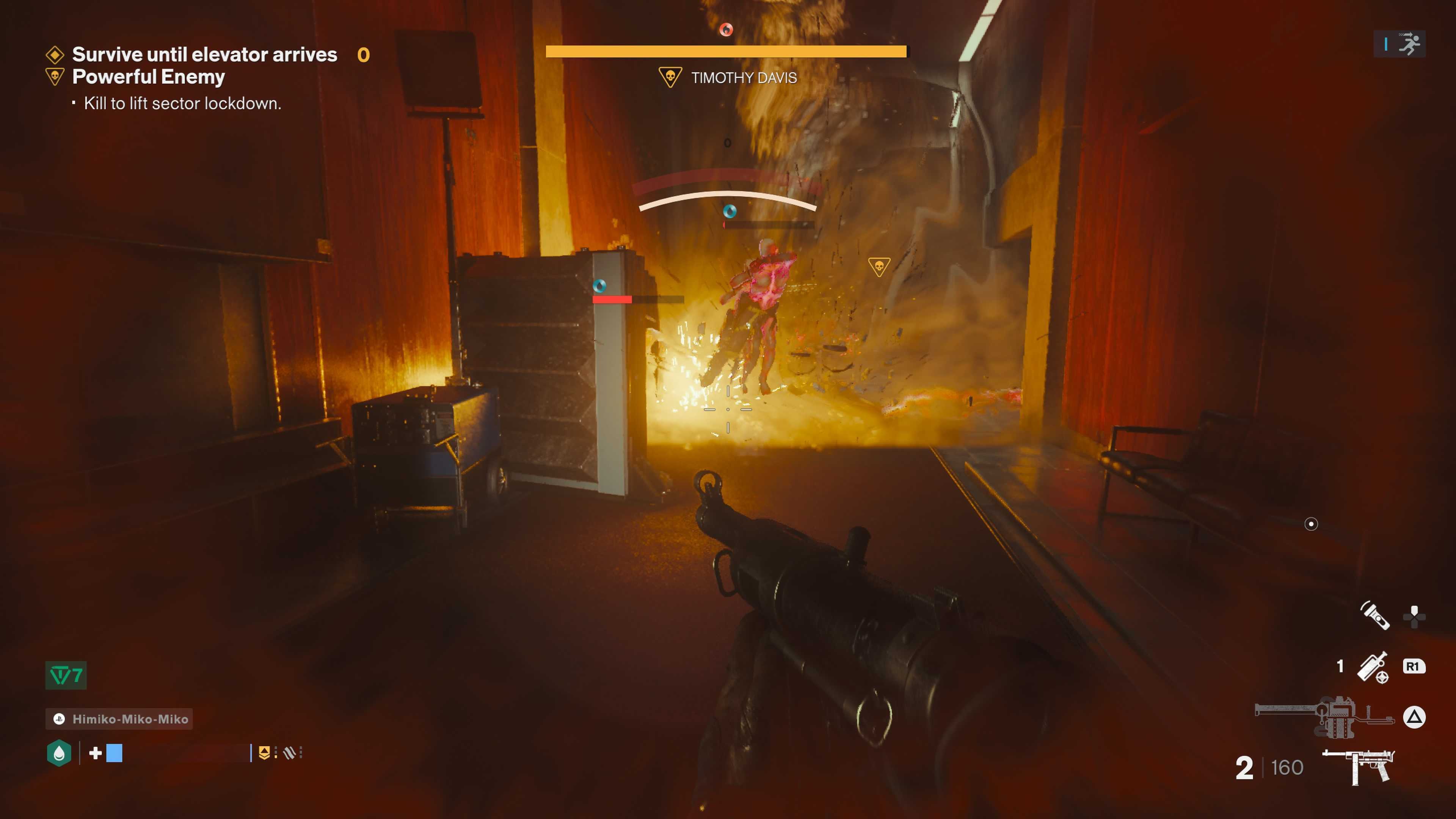
I booted up FBC: Firebreak feeling optimistic, as its core concept is certainly intriguing.
You play as a Firebreaker, specialized agents in the fictional Federal Bureau of Control (FBC) tasked with venturing into abandoned districts of the bureau’s HQ to contain rogue supernatural forces, in a team with up to two other players.
I absolutely adore the portrayal of the FBC in other Remedy games and was excited to learn more about its inner workings and explore new parts of the Oldest House (the mysterious, shifting brutalist skyscraper where the events of this game and Control take place).
Unfortunately, there’s no story content in FBC: Firebreak. You’re introduced to Hank, the leader of Firebreak, and his assistant Jerry, who exchange short quips as you navigate through the main menus, but that, on top of Hank’s occasional guidance during missions, is all you get.
Worse still, the dialogue is never particularly amusing, and the slapstick tone of these interactions feels a tad out of place. Control was not a massively serious game, but FBC: Firebreak really leans into its comedy to its detriment. It’s a game that seems more like it’s trying to ape Borderlands than actually expand on what made the source material so interesting.
It’s also a shame that the playable characters are all generic, masked goons. You can pick from a handful of distinct player voices, but it’s impossible to become invested in protagonists with no other identifiable characteristics.
Even the game’s unlockable cosmetic items fail to help them stand out. There’s nothing appealing about the prospect of grinding for hours in order to unlock a red helmet that nobody is realistically going to notice in an online lobby.
It’s like the developers knew this too, as unlocking cosmetics is often mandatory in order to reveal new shop pages with more useful items.
Dead end job
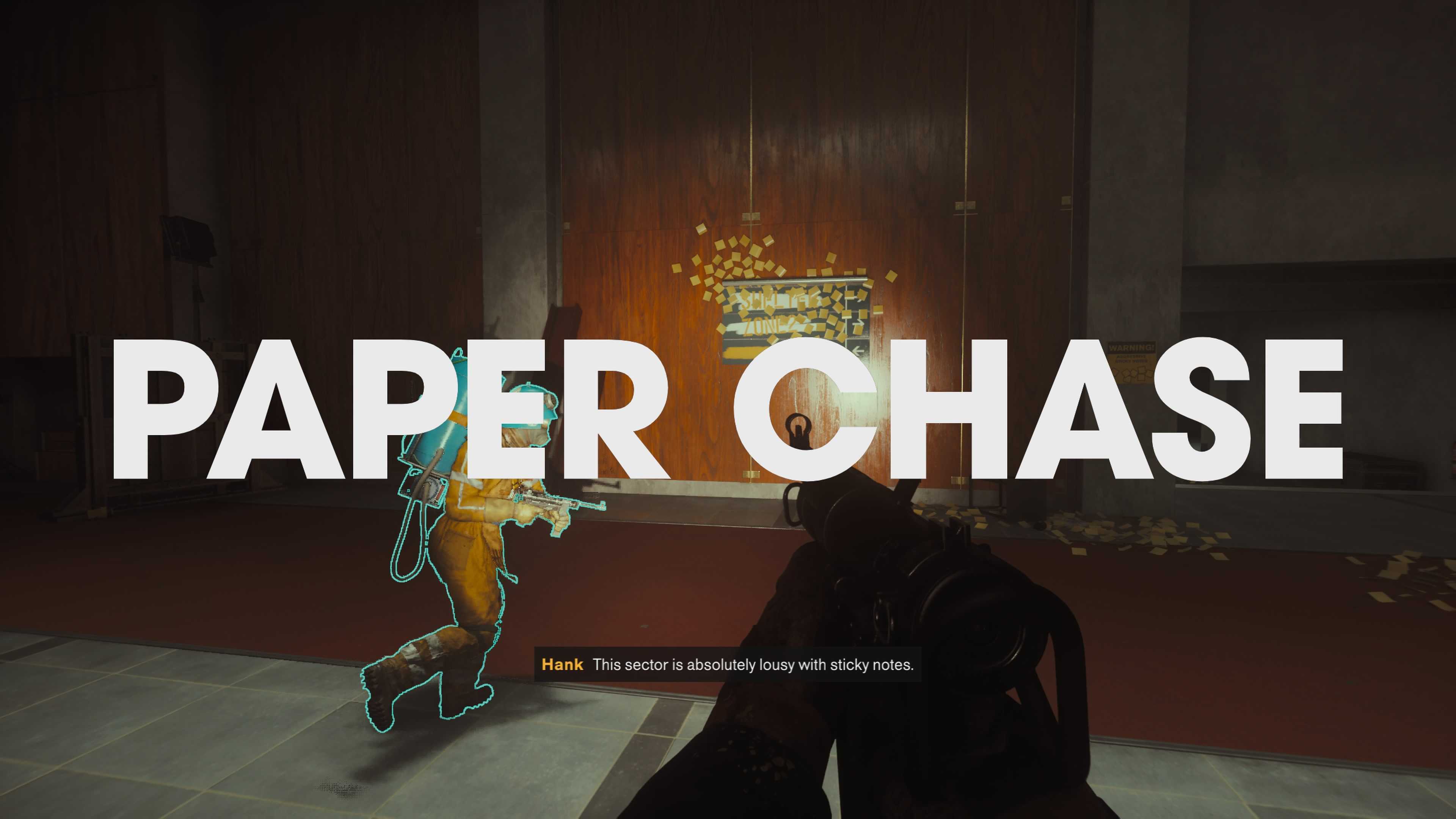
This is one of many decisions seemingly made to pad out the game’s runtime, which would otherwise be incredibly short.
There are a total of only five missions, or Jobs as they’re called in-game, with each split into three stages. The first two stages are always very basic, often taking just five or so minutes to clear.
They both feel like pointless filler compared to the third, which offers similar but more substantial objectives and sometimes a big boss fight to top it all off. The first two stages are, of course, mandatory as there would be practically no reason to endure them otherwise.
The missions themselves are at least conceptually interesting, but fail to capitalize on their most unique elements in enjoyable ways. Paper Chase, for example, seems like a slam dunk with the novel idea of offices that have been taken over by swarms of supernatural sticky notes.
Sadly, the mission just boils down to mindlessly shooting surfaces covered in sticky notes as an on-screen number showing the remaining notes ticks down for around fifteen minutes.
Best bit
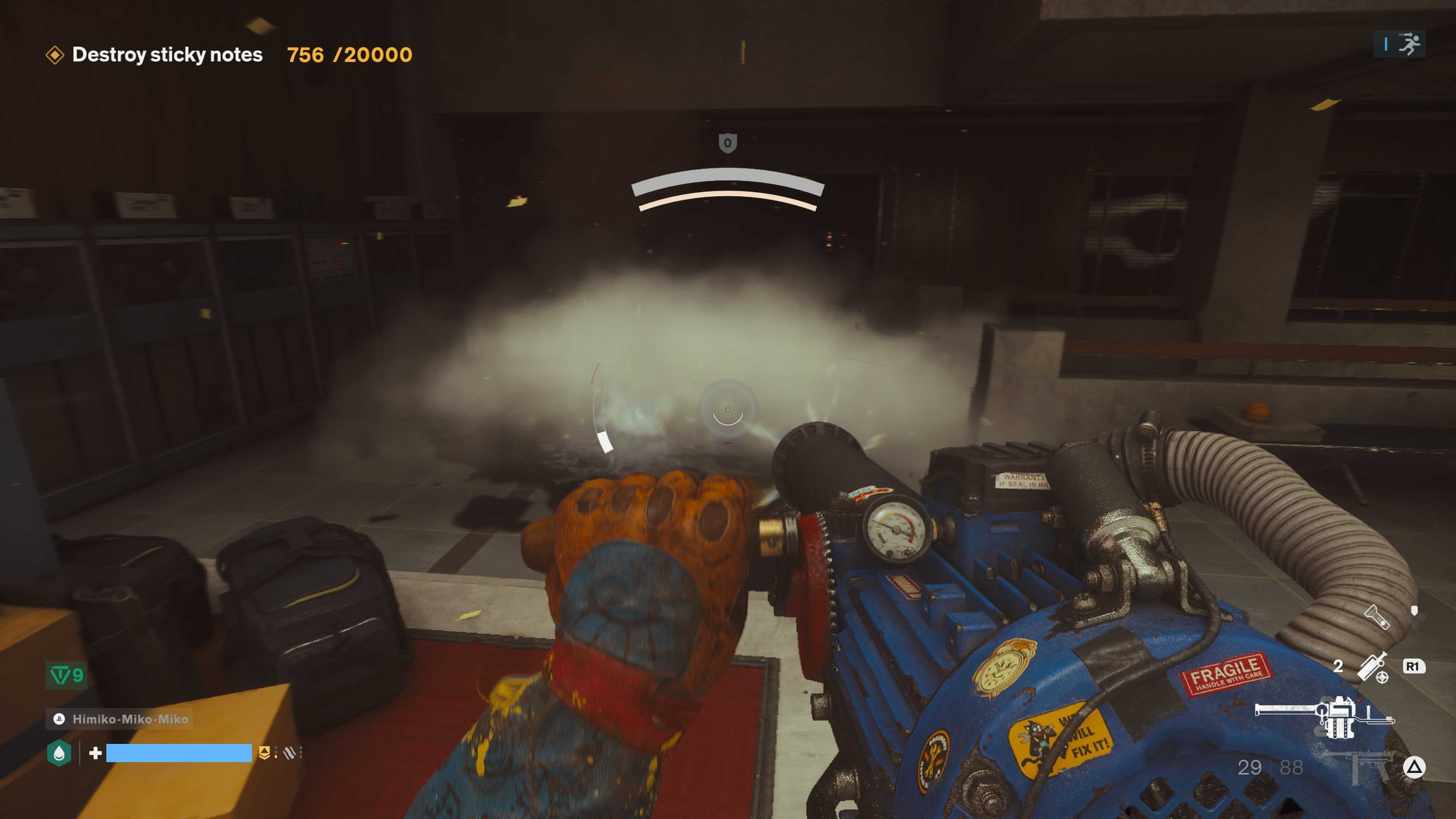
The hub area is home to your living quarters, a few rooms that can be extensively customized by spending a currency obtained on your travels. Placing objects to make the space your own is quite satisfying. Most can also be interacted with to see unique animations.
During every mission, waves of Hiss, humans possessed by a malevolent entity, beam in around you. I can count the number of unique enemies on one hand, with the same few enemy models popping up endlessly with no variation.
Even with the difficulty cranked all the way up, the pacing of these waves feels off-kilter, too, as there are frequent awkward stretches where there are no enemies on screen.
I would be able to forgive most of this if the guns were actually satisfying to use. They aren’t. Generic appearances and sound effects aside, there are just six to choose from.
Poor balancing means that one, the bolt action rifle, is so terrible that you wouldn’t ever want it in your loadout. The pump action shotgun and revolver, in contrast, are by far the most effective of the bunch so there’s no real reason to ever use anything else.
In crisis
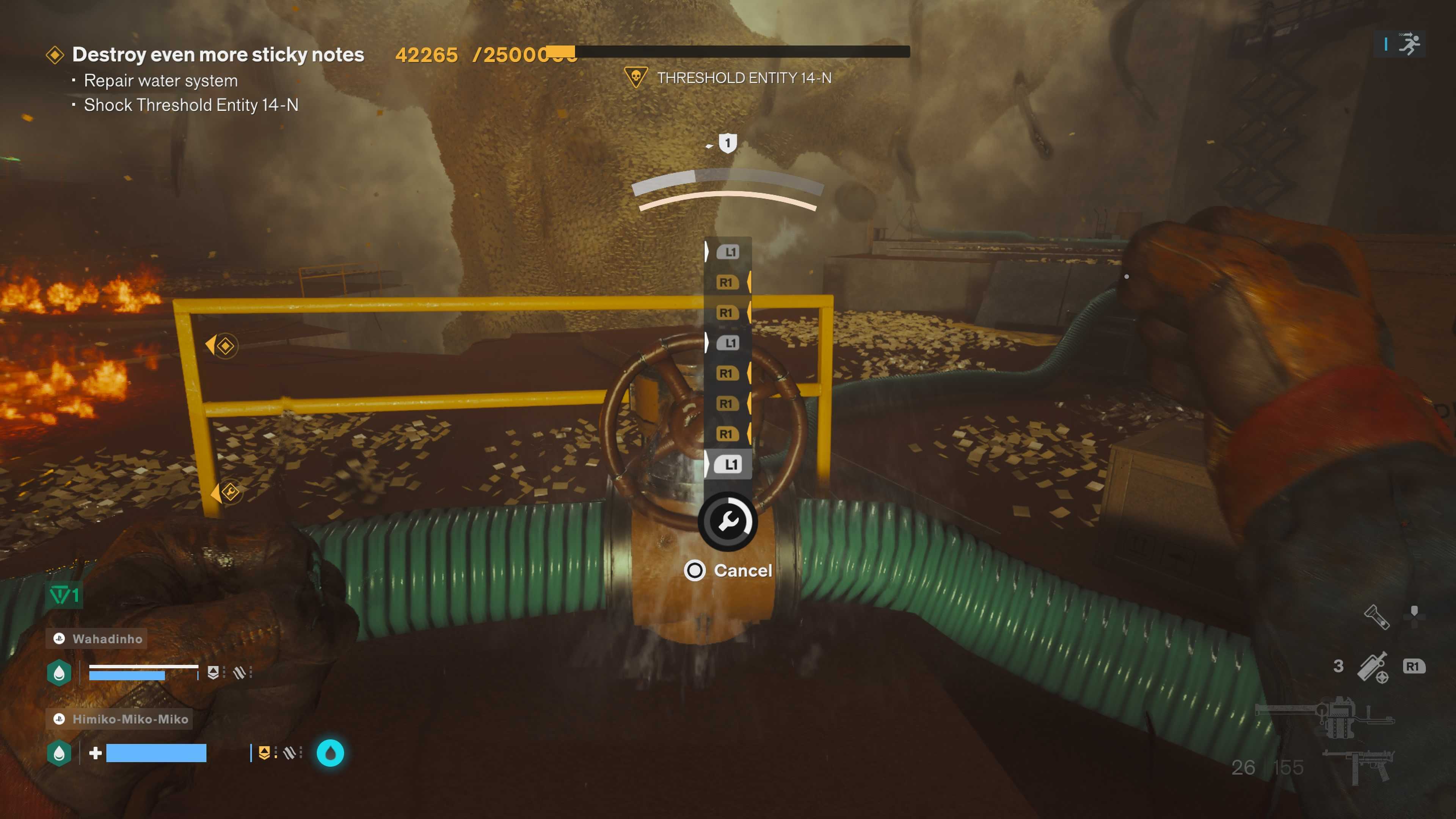
Much of the game’s marketing has focused on the Crisis Kits - the three sets of abilities that you can choose in your mission.
There’s the Splash Kit, granting a water cannon that can wash off annoying environmental effects (of which there are several) or put out fires, the Jump Kit with an electrical device for quickly charging generators, and the Fix Kit which lets you quickly repair broken items by swinging a big wrench around.
You can still accomplish all these tasks without the respective kits, but the interactions take the form of highly repetitive button-mashing that gets old quickly. Every mission has some component that can benefit from a particular kit, so there’s no strategy in which one you pick. Each match has three players, so obviously you just need one of each. There are no real advantages or disadvantages of any of the individual kits, either, so it really is as simple as that.
Each kit can be upgraded up to three times to unlock new secondary and special abilities, including a powerful attack that provides a welcome break from the endless shooting.
However, this only feeds into the biggest issue with FBC: Firebreak: the fact that the first hour is unremittingly awful.
For some reason, you start out with broken gear that’s woefully ineffective. The water cannon, for example, can only blast a few drops of water at a time. Similarly, your firearms deal reduced damage. You have to grind through a game after game in this state until you have the currency required to get everything back in working order, not to mention pick up some of those abilities and some perks to boost your stats.
I don’t understand this decision at all, as it just makes for a horrendous first impression. It’s easy to imagine most players downloading the game, experiencing one or two slogging matches with their artificially weakened gear and abilities, and then just uninstalling it to play something more rewarding.
This, unfortunately, makes it very difficult to recommend FBC: Firebreak in its current state. If you could simply log on and play around with everything right away, it might be able to provide a couple of hours of co-op entertainment before the boredom sets in.
As it stands, you’ll be sick of what's there before even getting to experience its flagship features.
Should I play FBC: Firebreak?
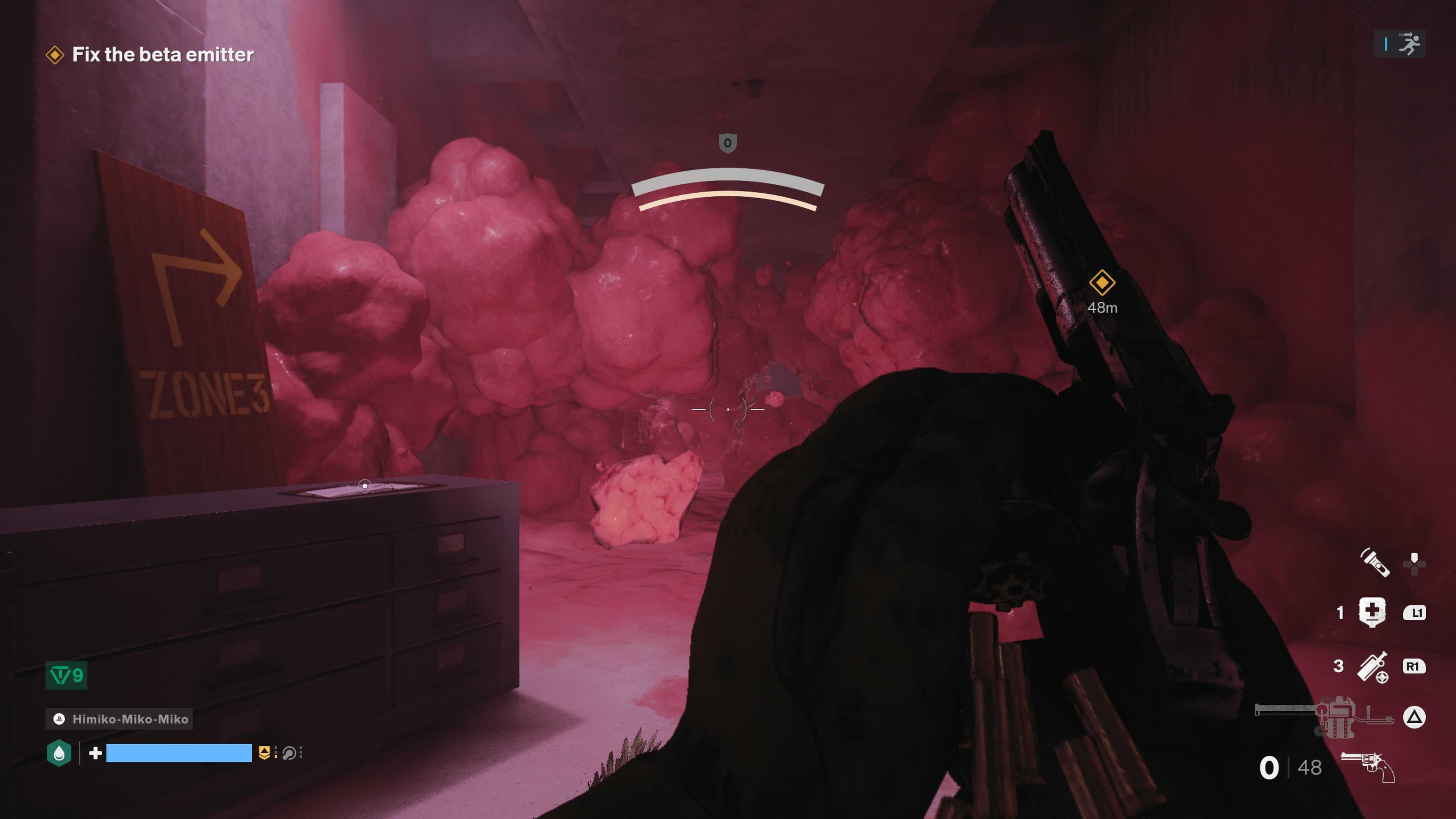
Play it if…
You can get it for ‘free’
FBC: Firebreak is part of PS Plus and Xbox Game Pass. If you are already subscribed to one of those services, it might be worth trying to see whether it’s tolerable for you and your friends.
It receives some patches
Some of the biggest problems with FBC: Firebreak could be addressed down the line with patches. If you’re reading this after the game has been out for some time, give it a go to see if things have changed.
Don’t play it if…
You’re expecting lots of lore
FBC: Firebreak contributes very little to the universe of Control and other Remedy games. If you’re a huge fan of the lore, you can safely skip this one.
You don’t have hours to grind
The start of FBC: Firebreak is a frustrating grind. Avoid it unless you have the time to invest in order to get to the less painful parts.
Accessibility
There is, unfortunately, no dedicated accessibility menu in FBC: Firebreak. The controls can be fully customized on console, though, and there are a number of options that allow you to toggle actions like aiming down sights. The game features subtitles throughout.
How I reviewed FBC: Firebreak
I played almost ten hours of FBC: Firebreak on PS5 and DualSense Wireless Controller in the build-up to launch using a copy provided by Remedy Entertainment.
I experienced every mission that the game has to offer at least once, trying out multiple weapons and each of the Crisis Kits. I played both solo and multiplayer, using the game’s built-in online matchmaking to play with random players, and participated in a few matches with other reviewers.
Throughout my time with the game, I compared my experience with my time in other online first-person shooter games of a similar scope, including Wolfenstein: Youngblood, Tom Clancy’s Rainbow Six Extraction, and Helldivers 2.
First reviewed June 2025



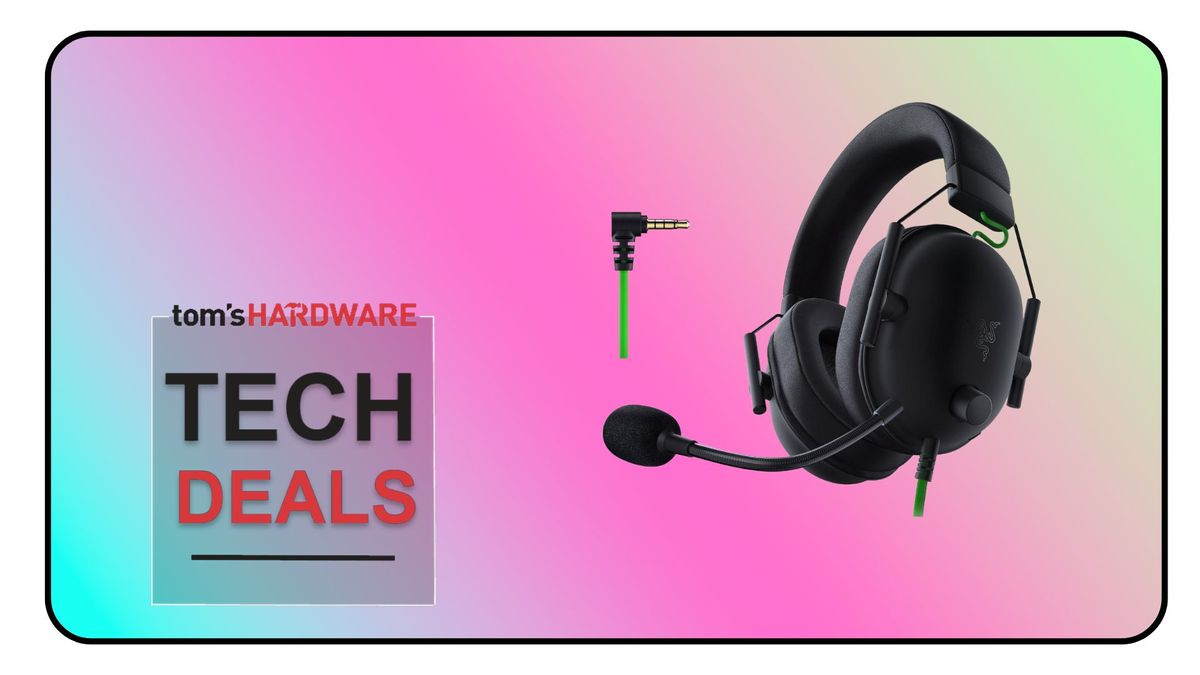






 English (US) ·
English (US) ·